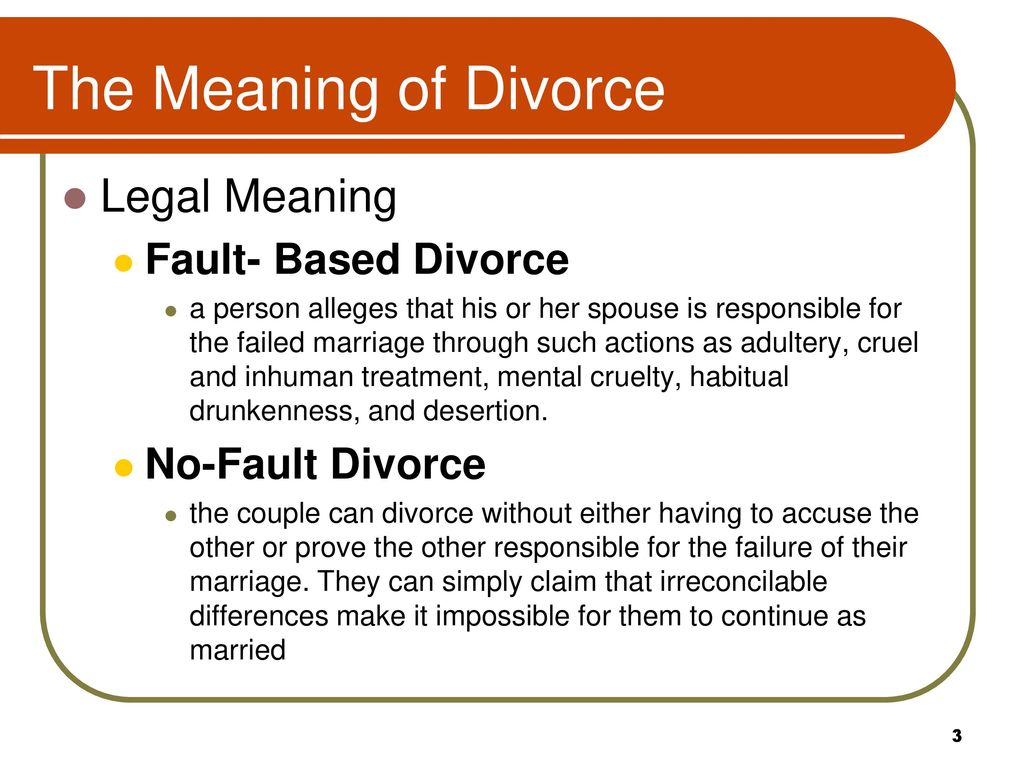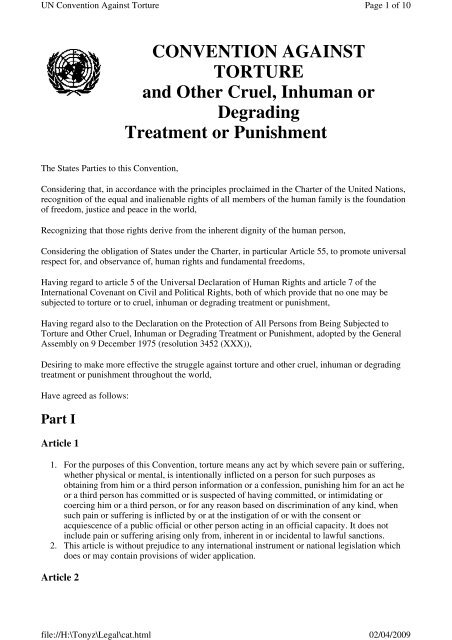Habitual Cruel And Inhuman Treatment
Habitual cruel and inhuman treatment. 4 awarding physical custody of the minor child to Loyd. This is a divorce action brought by Gloria Reed against Matthew Reed on the grounds of habitual cruel and inhuman treatment or in the alternative irreconcilable differences. As defined by Blacks Law Dictionary 2 nd Edition cruel and inhuman treatment is a grounds for divorce whereby one spouse has treated the other with such great suffering that makes living life together untenable and not bearable As you may have noticed the legal definition of cruel and inhuman treatment is just as vague as the term cruel and inhuman treatment.
Ground of habitual cruel and inhuman treatment. After a trial the chancellor denied Waynes claim for divorce and granted separate maintenance to Ursel. Habitual cruel and inhuman treatment may be established by a showing of conduct that either 1 endangers life limb or health or creates a reasonable apprehension of such danger rendering the relationship unsafe for the party seeking relief or 2 is so unnatural and infamous as to make the marriage revolting to the non-offending spouse and render it impossible for that spouse to discharge.
It also applies to conduct of such unnatural or infamous nature to make the marital relationship revolting to the innocent spouse. Loyd filed a conditional cross-appeal. Mental illness or mental retardation at the time of marriage if the party complaining did not know of that infirmity.
Ursel and Wayne married in 1983 later settling in Jones County Mississippi. This ground allows a divorce where the defendants habitual cruel or inhuman conduct has an adverse impact on the. First like all fault grounds for divorce the burden is on the spouse seeking the divorce to prove that the guilty spouse has done something wrong.
Feeling aggrieved Matthew appeals. Wayne testified that he has a variety of illnesses and is in poor health. Habitual cruel and inhuman treatment is not the catch-all category to permit a divorce when a marriage is suffering difficulties.
The appellate court explained that to prove cruel and inhuman treatment the wife had to show actions that either endangered life limb or health or created a reasonable apprehension of danger such that the relationship was unsafe for the party asking for relief or else was so unnatural as to make the marriage revolting to the non-offending partner. 5 dividing the property. Today we will discuss Cruel and Inhumane Treatment You can find the text of this fault ground in Mississippi Code Annotated at 93-5-1 but here are a few key points.
Habitual cruel and inhuman treatment - This is one of the most common grounds for divorce in Mississippi yet one of the toughest to prove. Having reviewed the pleadings Ive looked through all 13 exhibits that were admitted into evidence by stipulation looking at the notes that I took during testimony the court finds that Karrah has failed to present adequate proof of habitual cruel and inhuman treatment and after reviewing the standard set by the case law in the State of Mississippi the court is of the opinion that Karrah is not entitled to a divorce on the grounds of habitual cruel and inhuman treatment.
Habitual cruel and inhuman treatment.
Today we will discuss Cruel and Inhumane Treatment You can find the text of this fault ground in Mississippi Code Annotated at 93-5-1 but here are a few key points. Feeling aggrieved Matthew appeals. Spousal domestic abuse may be established through the reliable testimony of a single credible witness who may be the injured party and includes but is not limited to. Mental illness or mental retardation at the time of marriage if the party complaining did not know of that infirmity. 4 awarding physical custody of the minor child to Loyd. It also applies to conduct of such unnatural or infamous nature to make the marital relationship revolting to the innocent spouse. Cruel and Inhuman Treatment Another name for cruelty or for the intentional hostile infliction of physical or mental suffering upon another individual which is a ground for Divorce in many states. The Mississippi Legislature did not approve no-fault irreconcilable differences divorces until 1976. Habitual cruel and inhuman treatment may be established by a showing of conduct that either 1 endangers life limb or health or creates a reasonable apprehension of such danger rendering the relationship unsafe for the party seeking relief or 2 is so unnatural and infamous as to make the marriage revolting to the non-offending spouse and render it impossible for that spouse to discharge.
What is cruel and inhuman treatment. Habitual cruel and inhuman treatment can be proven by showing repeated acts of physical or emotional abuse or by one extreme act of physical abuse. Habitual cruel and inhuman treatment. Cruel and inhuman treatment ordinarily encompasses mental and physical cruelty of any kind and is also known as cruel and abusive treatment and as cruel and barbarous treatment. Habitual cruel and inhuman treatment - This is one of the most common grounds for divorce in Mississippi yet one of the toughest to prove. The actions rising to the level of habitual cruel and inhuman treatment are more than the typical fussing and fighting that couples go through. Cruel and Inhuman Treatment Another name for cruelty or for the intentional hostile infliction of physical or mental suffering upon another individual which is a ground for Divorce in many states.






























Posting Komentar untuk "Habitual Cruel And Inhuman Treatment"